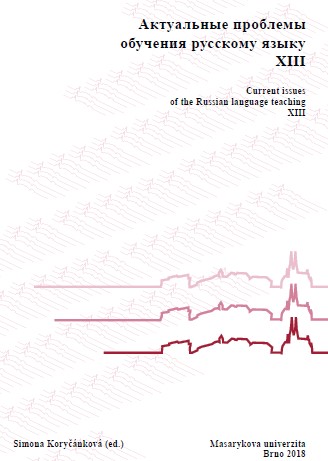TEACHING OF RELATED LANGUAGES: MAIN METHODICAL PRINCIPLES
TEACHING OF RELATED LANGUAGES: MAIN METHODICAL PRINCIPLES
Author(s): Helena Kolosova
Subject(s): Foreign languages learning, Language acquisition, Comparative Linguistics, Eastern Slavic Languages, Methodology and research technology
Published by: Masarykova univerzita nakladatelství
Keywords: interference; comparative contrastive method; related languages; methods of teaching; Russian language;
Summary/Abstract: It is widely known that in methods of language teaching special attention is always paid to the interference at all language levels, so called feedback method is used as well as comparative and contrastive methods. It seems in this case to mention it could be the reason to study attentively some special methods which can help to develop language intuition which in turn will help to understand the essence of the language and to see differences and similarities of the language and culture pictures of the world. Language teaching in today's world always takes into account problems of intercultural and interlanguage communication, it is aimed at achieving effective communication and adequate understanding between participants of the communicative act who can be representatives of different cultures. In general bringing up of tolerant relation to people from another nationality, as well as getting students to know the culture of other nations should be the most important parts of any language teaching. The article will consider peculiarities of teaching of the Russian language to students using method of historical commenting based on comparative historical and diachronic methods of research (pleophony//reflection of consonants’ combinations etc.), facts of interlanguage paronymy and homonymy, comparison of cultural elements as part of linguacultural interference (ethical norms, national holidays etc), projections of verbal and non-verbal communication. When teaching Russian at university different methods can be used – traditional (visual means, text work, project work) as well as innovative which appeared as a result of IT technologies emergence (social networks and emailing).
Book: Актуальные проблемы обучения русскому языку XIII
- Page Range: 130-135
- Page Count: 6
- Publication Year: 2018
- Language: English
- Content File-PDF

